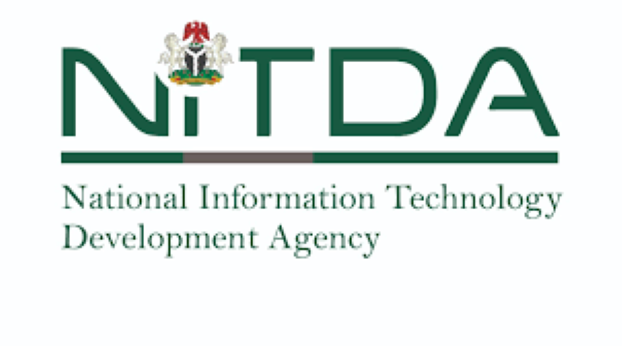Telecom
Beware: Your Site Could be at Risk – NITDA warns WordPress users in Nigeria

National Information Technology Development Agency, NITDA has alerted WordPress users in Nigeria about a new vulnerability called CVE-2024-28000, affecting over 5 million websites globally.

The agency gave the warning through a facebook post on Monday warning wordpress users to be weary of LiteSpeed Cache plugin, noting that it’s a tool many people are using to speed up their websites.
NITDA noted that Hackers can exploit this plugin to potentially take full control of users website.
The warning stated that the vulnerability lies in the plugin’s “role simulation” feature, which gives cybercriminals admin access to your site without needing a password.
“Once they’re in, they can install malicious plugins, steal your data, or even redirect visitors to sketchy websites. It’s a huge deal, and you don’t want to be on the receiving end of this.
“To make things worse, the attack is easy for hackers to pull off, thanks to a weak hash function and the simplicity of the exploit. They can brute force their way in or use exposed debug logs to grab admin rights. If your site gets hit, you could be dealing with data theft, site defacement, or worse, your visitors being sent to dodgy websites.
But don’t freak out just yet — there’s something you can do! NITDA recommends you update the LiteSpeed Cache plugin to the latest version (6.4.1) ASAP. You can do this in your WordPress dashboard under “Plugins.”

Also, turn off debugging on live sites (it can expose sensitive info) and regularly check your plugin settings for risks.
While LiteSpeed Cache helps boost your site speed, it has had its share of vulnerabilities in the past, from cross-site scripting to privilege escalation.
The key to staying safe?
Keep everything updated and stay alert for any security warnings. So, if you have not already, go update that plugin right now — your website’s safety depends on it!
Telecom
Airtel Africa Grew Customer Base to 169m as Q1 Revenue Hits $1.4 Billion

Airtel Africa has grown its customer base by 9.0% to 169.4 million, with data customers increasing 17.4% to 75.6 million with focus on bridging the digital divide across her markets continues. According to the telecommunications operator’s financial results for the quarter ended June 30, 2025, which demonstrated strong growth across key metrics and a continued focus on expanding its services across its 14 African markets.

The operator reported a significant increase in revenue, reaching $1,415 million. This represents a 24.9% growth in constant currency and a 22.4% increase in reported currency, indicating a more stable macroeconomic environment in its operating regions and effective tariff adjustments, particularly in Nigeria.
The growth was broadly driven, with mobile services revenue increasing by 23.8% in constant currency. Data revenue showed exceptional performance, surging by 38.1%, while voice revenue grew by 13.9%. Mobile money services continued their strong upward trajectory, recording a 30.3% growth in constant currency. This was supported by accelerated growth in Francophone Africa (16.4% in constant currency) and continued strong performance in East Africa (20.3% in constant currency).
Airtel Africa’s profitability also saw a substantial uplift. EBITDA grew by 29.8% in reported currency to $679 million, with EBITDA margins expanding to 48.0% from 45.3% in the prior period. This margin expansion is attributed to sustained operating momentum, more stable fuel prices, and the ongoing benefits from cost efficiency programs.
Profit after tax saw a remarkable improvement, rising to $156 million compared to $31 million in the prior period. Basic Earnings Per Share (EPS) stood at 3.4 cents, a significant increase from 0.2 cents in the previous year, primarily reflecting higher operating profit in the current period and the absence of large derivative and foreign exchange losses that impacted the prior period.
Operational highlights further underscored the company’s growth. Airtel Africa’s total customer base expanded by 9.0% to 169.4 million. Data customers increased by 17.4% to 75.6 million, as the company intensified its efforts to bridge the digital divide. Mobile money customer base also grew by 16.1% to 45.8 million, with transaction value increasing by 28.7% in constant currency.
The company’s strategic focus on enhancing customer experience is supported by ongoing network investments. Over 2,300 new sites were rolled out, bringing the total to 37,579 sites, and the fiber network was expanded by 2,700 km, now exceeding 79,600 km. This investment has boosted data capacity across the region, with 4G population coverage reaching 74.7%, an increase of 3.4% year-on-year.
Airtel Africa continued its debt localization program, with almost 95% of its operating company debt (excluding lease liabilities) now in local currency, up from 86% a year ago, reducing foreign currency debt exposure. The company also confirmed it has returned $16.9 million to shareholders through its ongoing share buyback program as of June 30, 2025.
Sunil Taldar, chief executive officer, said: “We are very pleased with the strong growth in our operating and financial performance in the first quarter. The strength of this performance, and the scale of the growth we achieved, reflects the sustained demand for our services and the strength of our business model to meet these demands. Operationally, the acceleration in customer base growth to 9%, and 17.4% growth in our data customers to 75.6m reflects the strong on-ground execution with a relentless focus on digitisation and the simplification of the customer experience.”
Telecom
Khalil Halilu Honoured at UK Parliament for Championing African Innovation

Mr. Khalil Suleiman Halilu, executive vice chairman/ceo of the National Agency for Science and Engineering Infrastructure (NASENI), was honoured with the prestigious African Achievers Award at the 15th edition of the ceremony held at the historic House of Lords, UK Parliament, on July 11, 2025.

L-R: Founder, Startup Arewa, Mohammed Jega; Deputy Mayor of London for Environment and Energy Mete Coban; Executive Vice Chairman/CEO, National Agency for Science and Engineering Infrastructure (NASENI), Khalil Suleiman Halilu; and Special Adviser to the EVC on Commercialization, Engr. Anas Balarabe during the presentation of the prestigious African Achievers Award to Halilu at the House of Lords, UK Parliament recently.
The award, presented during an event that brought together royals, global leaders, policymakers, and innovators, recognized Mr. Halilu’s outstanding contributions to advancing Africa’s technological infrastructure, innovation ecosystems, and industrial growth through his leadership at NASENI.
Hosted by Baroness Sandip Verma, Chancellor of the University of Roehampton and a respected member of the House of Lords, the ceremony was a powerful global showcase of African excellence and transformative leadership. Mr. Halilu joined a distinguished group of honourees including public officials, business executives, and philanthropists shaping the future of the continent.
In his remarks, Mr. Halilu emphasized Africa’s readiness to lead in innovation, manufacturing, and sustainability.
“It is a great honour to receive this award alongside fellow visionaries committed to Africa’s future. At NASENI, we are bridging the gap between ambition and access, turning ideas into industries, empowering indigenous solutions, and driving forward Nigeria’s and Africa’s industrial transformation. Africa is not just rising, it is ready.”
Under his leadership, NASENI has been repositioned as Nigeria’s leading technology transfer agency, delivering on the Renewed Hope Agenda of President Bola Ahmed Tinubu by enabling local production in critical sectors such as clean energy, agriculture, transportation, and digital infrastructure.
Through strategic partnerships and an Accelerated Technology Transfer & Adaptation Strategy, NASENI is turning Nigeria into a hub for sustainable innovation and industrial self-reliance. Mr. Halilu extended appreciation to the organizers and supporters of the Awards:
“I thank the African Achievers Awards team, Baroness Sandip Verma, and all those across the continent and diaspora who continue to champion African solutions. This recognition is a motivation to do more and a reminder that the future we seek is one we must build ourselves.”
Now in its 15th year, the African Achievers Awards has become one of the most respected platforms spotlighting African leadership and excellence globally. This year’s edition included powerful messages from dignitaries such as King Misuzulu kaZwelithini, Queen Olori Atuwatse III, and Dr. Fatou Bensouda, reinforcing the urgency of building a united and future-facing African continent.
The award to Mr. Khalil Halilu reflects NASENI’s growing continental footprint and its mission to deliver homegrown technologies that respond to Africa’s real challenges, promote sustainable development, and accelerate industrialization across borders.
Telecom
NITRA-ALTON CNII & Sustainability Conference Rescheduled for August 7 in Lagos

The 2025 edition of the Critical National Information Infrastructure (CNII) & Sustainability Conference has been rescheduled to hold on August 7, 2025, at CitiHeight Hotel, Ikeja, Lagos, following a shift from its earlier date of July 30.

The adjustment was made to accommodate a nationwide telecom stakeholders’ meeting convened by the Nigerian Communications Commission (NCC).
The CNII Conference, jointly organised by the Nigeria Information Technology Reporters Association (NITRA) and Association of Licensed Telecommunications Operators of Nigeria (ALTON), seeks to address the implementation and awareness gaps surrounding the CNII Order, signed into law by the Federal Government in August 2024.
The law designates telecom infrastructure as Critical National Information Infrastructure, positioning it as a strategic asset vital to Nigeria’s economic and security framework. Industry groups including the Association of Telecommunications Companies of Nigeria (ATCON) have thrown their weight behind the initiative.
Speaking on the new date, NITRA Chairman, Mr. Chike Onwuegbuchi, emphasised that the Act, though laudable, requires industry-wide collaboration and clear implementation strategy for tangible impact.
“The mere proclamation of CNII as an Act does not guarantee infrastructure safety. Stakeholders must address operational and standardisation gaps to make the law work,” he said.
ALTON Chairman, Engr. Gbenga Adebayo, also highlighted the need for regular maintenance and technology upgrades to curb vandalism and ensure infrastructure security.
Focus Areas of the Conference Include:
- Implementation mechanisms for the CNII Act.
- Stakeholders’ roles at federal, state, and industry levels.
- Security enforcement and public education.
- Infrastructure protection and sustainability.
- Collaboration and compliance across telecom companies.
Expected attendees include the Minister of Communications, Innovation and Digital Economy, regulators, service providers, security agencies, and key players in public and private sectors.
The event is themed “Industry Sustainability And CNII Conference 2025 – Way Forward”, with panel discussions aimed at creating a unified approach to safeguarding Nigeria’s telecom infrastructure under the CNII provisions.

 E-Financial3 days ago
E-Financial3 days agoKuda Unveils New Wallet for Multiple Currencies

 Telecom3 days ago
Telecom3 days agoTelcos Resume SIM Card Sales after 2-Week Halt

 Telecom3 days ago
Telecom3 days agoNigeria, Others Achieve 84% Adult Mobile Phones Penetration

 E-Business3 days ago
E-Business3 days agoHow AI Alert by Airtel is Transforming Mobile Security in Africa

 E-Business3 days ago
E-Business3 days agoNITDA, API Partner Against Harmful Online Content

 Telecom2 days ago
Telecom2 days agoGlo Launches Nigeria’s First-of-its-kind Device Protection Plan

 Telecom2 days ago
Telecom2 days agoTelcos: How and Why Network Services have Been Poor

 News3 days ago
News3 days agoHorn of Africa Leaders Seek Enhanced Digital Integration for Increased Regional Growth

























